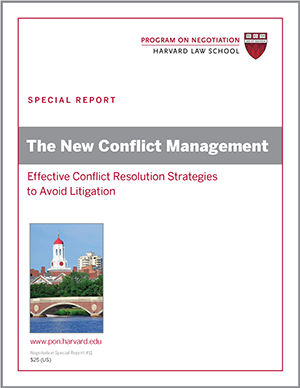
Retired US Senator George Mitchell played a critical role in negotiating the Good Friday Agreement in Northern Ireland. In an interview with Susan Hackley, former Managing Director of the Program on Negotiation at Harvard Law School, back in the February 2004 Negotiation newsletter, we learn how he was able to facilitate an agreement between these long-warring parties.
The negotiations leading up to the agreement took 700 days, with over a year spent just outlining procedures and the agenda. One of the keys to Mitchell’s success initially was his usage of the “Mitchell Principles” or preconditions to the negotiations which included a commitment to nonviolence, open communication, and democracy. Mitchell also established a rule of “sufficient consensus” which allowed parties to vote against part of a proposal while still voting for the passage of the proposal as a whole.
The negotiations took a critical turn when Billy Wright, the leader of a unionist group who was strongly against the peace process, was assassinated in prison by members of an Irish republican group. Facing escalating violence, Mitchell decided to set a firm deadline for the end of the negotiations. This strategy, while a desperate measure, forced both parties to reexamine their positions and face the potential of having to go in front of the public and explain why the negotiations failed. Ultimately, this one bold move became a turning point in resolving this centuries-old conflict.
In business negotiations, Mitchell suggests that first, you must always know your subject. Who are the parties involved and what are the issues? Secondly, you must clearly outline your objectives in any negotiation. Without a clear understanding of where you want to go, you may waste a lot of time on ultimately unimportant issues.
Negotiators must also have the wisdom to recognize when they are ahead and then the good judgment to stop at that point. Carefully defining success and recognizing that it may not mean 100% success can greatly increase your chances of a resolution to the conflict.
Finally, Mitchell urges negotiators to have the courage to include all parties at the negotiating table in order to assure a universally acceptable agreement. All sides of the conflict need to be adequately represented.
Share your stories about negotiating with our readers in the comments.





